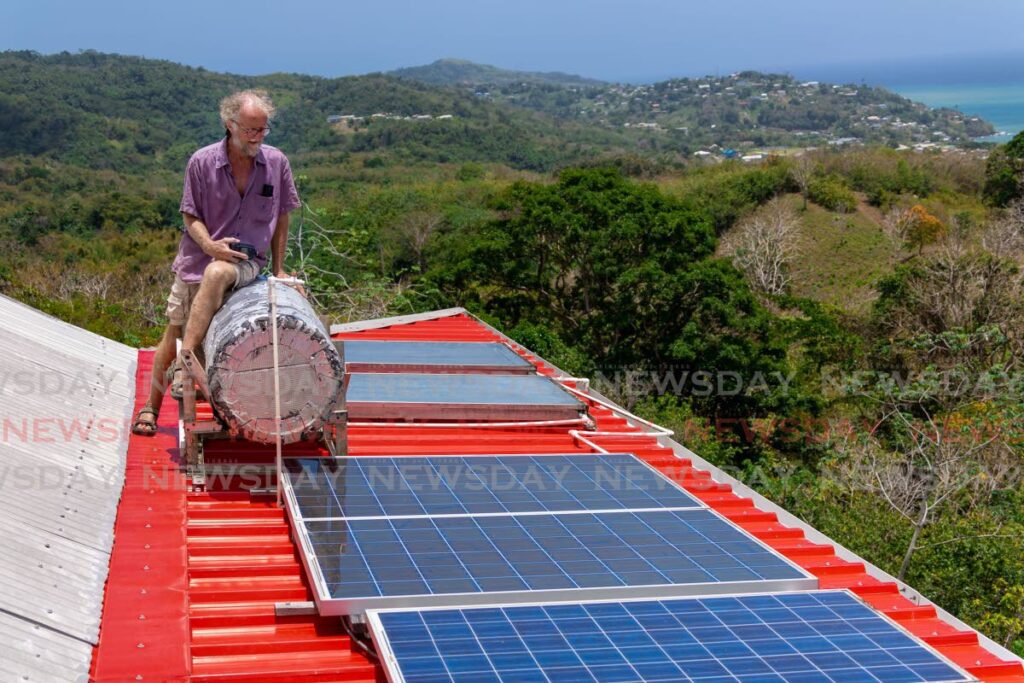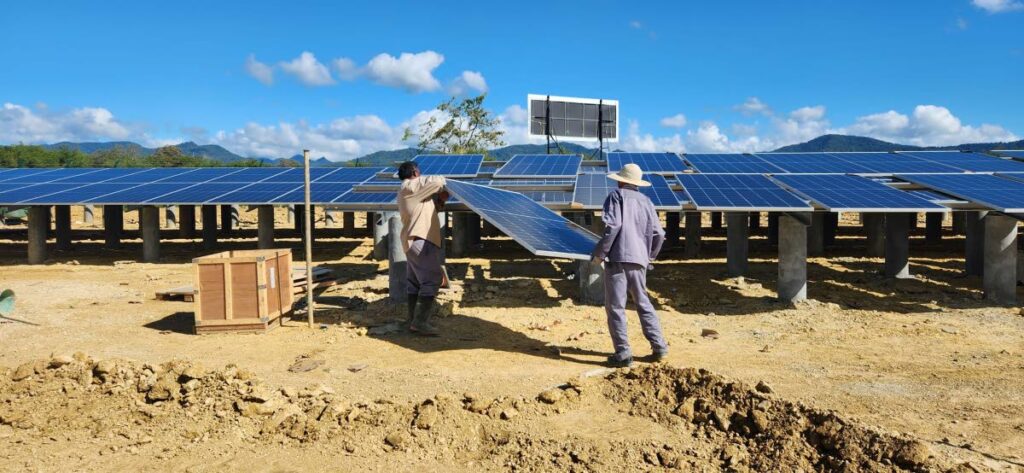UN agency advises: Give people power to go solar

A survey conducted by the Global Climate Change Alliance+ initiative of the UN Development Programme (UNDP) in collaboration with the Ministry of Planning and Development revealed that while people are willing to adopt energy-efficient, energy-conservative and renewable products and practices, there isn’t enough encouragement through regulations, and affordability for them to go green.
The survey, funded by the European Union to the tune of 2.4 million euros, covered 500 homes across a wide cross-section of respondents identified by age, household income and location.
Dr Curtis Boodoo, assistant professor, utilities systems engineering unit, at the University of TT, in presenting the findings at the Hyatt Regency in Port of Spain, Wednesday, said that eight in ten people are reported to be interested in items such as solar PV systems. Seven in ten people knew a great deal or a fair amount about solar energy.
The survey revealed that 87 per cent were aware of solar PV systems, 86 per cent were aware of solar-powered outdoor lights, 54 per cent were aware of solar-powered heaters and 53 per cent knew about solar-powered cellphone chargers.
However of those aware of solar-powered products only two in ten said they use these products in their homes. Only two per cent use solar-powered PV systems, 18 per cent use solar-powered outdoor lights, one per cent use solar-powered water heaters and seven per cent use solar-powered cellphone chargers.
To answer the question why, Boodoo said the perception of solar energy is that there are many gaps that would hinder the average person from using it.

“We found that the perception is that solar is expensive,” he said. “We really do have to focus our campaign or any sort of media campaign that is related to solar on addressing the perception that is super-dependent on the weather. It is, but you can get solar energy even when it is raining.”
He said the perception that solar power is very expensive in the first instance was correct. During a project which saw six institutions, some of which did not have any electricity at all, install solar-powered grids, the UNDP found that batteries to store energy from solar panels amounted to about 40 per cent of the costs.
“So, if we can allow systems without batteries, then the cost of solar will drop,” he said. “But the only way to do that is to allow interconnection.”
He added that there is also a need to address the perception that there are few locally-trained people in solar energy. He said there must be a focus on forwarding information on people trained in solar repairs and maintenance.
“National universities and private institutions are offering training courses,” he said.
Boodoo said for the nation to move forward there must be a focus on education, information sharing and public engagement.
The survey found that simple and understandable information materials needed to be developed with three areas of focus – the direct benefits of solar energy, energy consumption tips and debunking the misconceptions and myths surrounding solar PV systems.
He added that Government must assist in bridging the gap between the public’s willingness to adopt solar energy and energy-efficient products and the cost. The findings in the survey revealed that, as with any new technology, consumers tend to associate it with higher costs. Communicating how to make investment costs more manageable and how to mitigate initial costs is necessary to overcome this barrier from inception.
“If we work toward allowing the grid to be the battery, and we look toward finally after many years implementing a feed tariff, that will directly adjust perception and the right perception of solar,” he said.
He also called for government to incentivise the use of energy-efficient or solar appliances.
“We have to encourage or incentivise or offer lower tax rates for solar-powered AC units which can be double the cost of a normal AC. We also have to incentivise inverter technology as it relates to refrigeration,” he said.
Utilising channels with high rates of interaction, such as local traditional media and social media, would also assist in engagement, the study suggested. Channels with high interaction would allow for information to target a larger segment of the population within a shorter time.
The report suggested that consumers’ media consumption habits, would help to reach thousands. Local television news would also assist in reaching elderly people.
It also suggested that the information be consumer friendly and engaging so it would not overwhelm its audience. This can be done through short-form videos and simplifying difficult terms using relatable examples. The findings suggested that this would spark conversation among family and peers. It would also provide an avenue for the information to remain relevant.
The report also recommended the usage of solar-powered systems as a driver for promoting new and established technologies in the solar and energy-efficient areas.
Showcasing installations in identified areas can be one way to increase awareness and “spread the word‟ to speed up adoption.
“When you put up a solar panel on your roof, people would see it, and it may encourage them.” Boodoo said. “But if you put a solar-powered AC unit in your house there wouldn’t be many people that would see that.”
The report also found that consumer testimonials would increase credibility and trustworthiness in solar-energy and energy-efficient products, as the feedback would help people to decide to use the technology.


Comments
"UN agency advises: Give people power to go solar"